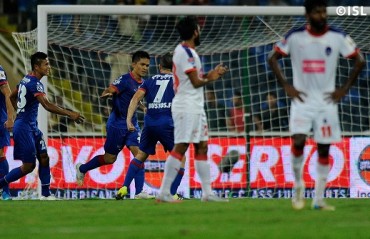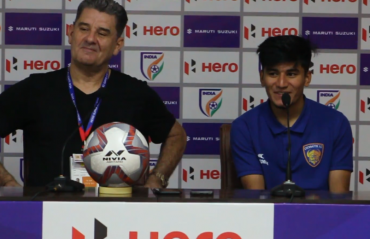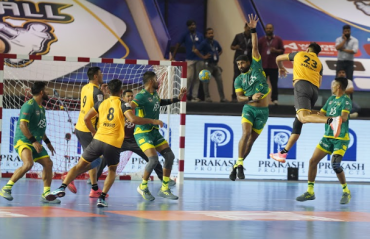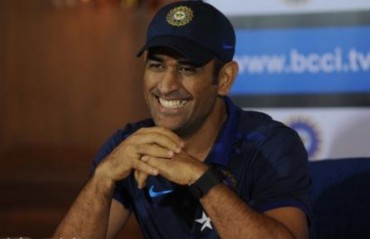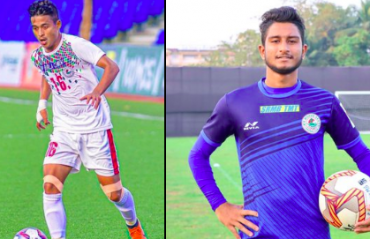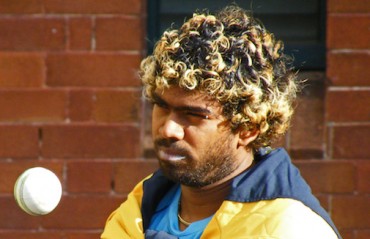Ganguly's criticism of AIFF is valid but it fails to see the bigger picture
A DAY AFTER all the I-League clubs got together to strongly criticise then block AIFF's attempts to make changes to the marquee rule, a new barrage of criticism has landed on India's football governing body, this time from ex Indian cricket captain and ISL franchise Atletico de Kolkata co-owner Sourav Ganguly.
Speaking to the press ahead of the ISL domestic draft, Ganguly said in no unclear terms that AIFF, in his opinion, was not doing enough,
"Success of any sport nationally, internationally depends on infrastructure of the entire system, ISL is for two months and it is slowly improving the infrastructure but I believe that the AIFF has to play a bigger role if football in India has to go forward."
He went to compare the roles BCCI and AIFF have played to improve the respective sports they are in charge of.
In the late 1990s, Indian cricket, especially at the domestic level, was suffering due to lack of modern infrastructure and dated coaching methods, leading to a fledging national team performance graph, especially overseas. At that time, Indian cricket witnessed a turnaround; on field led by Ganguly himself, but in the background it was BCCI who took the initiative to run massive upgradation of stadiums, turfs and training facilities. By the time IPL started, Indian cricket already had acquired a modernized new face. Ganguly insisted,
"ISL needs AIFF's support, it cannot be the other way round. Like in cricket the BCCI supports the IPL and BCCI is the body which runs cricket in India and sees the domestic structure too."
These comments are just the latest in the series of criticism that AIFF has been receiving for its increasingly passive role in Indian football. In the last few years, AIFF has slowly relinquished itself from almost all responsibilities in top tier domestic football; I-League matches are organized by the home team, ISL is looked after by IMG-Relaince, and the Federation Cup has been scrapped altogether.
In the past couple of years, several first-rate academies have been shut down, or downgraded by moving its scholarship students elsewhere. Right now, AIFF does not do much more than passively observe top tier football and organize the 2nd division and age-restricted leagues. In short, it is doing the exact opposite of what BCCI does for the domestic sport.
But there are a couple of major factors that set football apart from cricket in India and many, if not most countries. Firstly, player development in cricket is mostly done by state academies, which are directly under and funded by BCCI. But in football, most players come from club-owned academies, and go through their senior careers at clubs that are private bodies with their own rights and demands. Over the years there have been multiple issues where individual or groups of clubs have disagreed with AIFF, leading to a stalemate.
However, AIFF is not really doing its best to assist or guide the clubs, and that is one of the main points hinted at by Ganguly. Their brand of "governing" in recent past has consisted of introducing stricter rules and stipulations on the clubs. But rarely have they been caught lending sympathetic ear to a club's problems, financial or otherwise, and offering help or advice to overcome them. This one-sided relationship, coupled with a bunch of clubs that are yet to catch up with modern professional administrative standards, it creates a state of stagnation that is the last thing Indian football needs right now.
It's not that AIFF has been much of an exceptional administrator in its 78 years of existence, but one has to wonder how much of the current trend of increasing passivity is due to its mega deal with IMG-Reliance. Since December 2010, IMG-Reliance have taken over the sponsorship, advertising, broadcasting, scheduling, merchandising, intellectual property and franchising rights of every tournament that falls under AIFF's radar.
This deal is unprecedented with regards to the all-encompassing power it gives to IMG-Reliance. No match can happen unless IMG-Reliance approves the fixture list. No sponsor or broadcaster can come on board without IMG-Reliance giving them the seal of approval. IMG-Reliance even control the money-flow; any donations made to AIFF goes directly to them, as does the sponorship and TV revenue from I-League.
The existing agreement and revenue sharing scheme between AIFF and the I-League clubs cannot be changed or subjected to amendment without the consent of IMG-Reliance, who are not keen on having this talk with the clubs any time soon. This means the clubs' long fight for making I-League a seperate legal entity and having a share of the TV revenue has reached an impasse. This bureaucratic stalemate makes it almost impossible for any real change to occur.
There can be no denying that much of the blame for India's poor performance in the international stage lies with the clubs' failure to set up well-equipped academies, widespread grassroot programmes and scouting networks. But it will not help to be blind to the fact that clubs have struggled to turn a profit since the early days of the National Football League, and AIFF did not feel the need to provide any extra incentive.
Their attempts to market the NFL and I-League were lacklustre at best; there were seasons where they could not even find a national broadcaster. This neglect towards maintaining and improving the league's brand image played a major role behind successful clubs like Mahindra United and JCT shutting shop citing lack of public interest. Although things have changed in the last couple seasons (ISL generating massive interest in Indian football, Bengaluru FC showing the way in how to run a successful and popular club, I-League experiencing their most successful season in 2014-15) many top-tier I-League clubs are still struggling to find adequate sponsorship to meet the cost of strict and often expensive criterions (the marquee player rule, for example) set on them by AIFF. And IMG-Reliance, too busy with ISL, have paid little attention to the situation. This is one aspect of the situation that has not been addressed by Ganguly in his comments.
So, to put it in a nutshell, it's true AIFF should take assume a more proactive role in Indian football, but then IMG-Reliance deal has taken the onus away from them. IMG-Reliance, in turn, chose to create their own tournament while making little attempt to make things better for I-League clubs, which, till now, produce almost all the players that go on to play in the national team. This leads to continued lack of modern infrastructure and sub-standard training facilities for present and upcoming players. Thus, the standard of football suffers. It's a vicious cycle that no one seems to be ready to break. And Ganguly's voice, safe within a sandbox of a cash-rich two month private tournament that hardly interacts with Indian football at large, fails to take that bigger picture into account.









